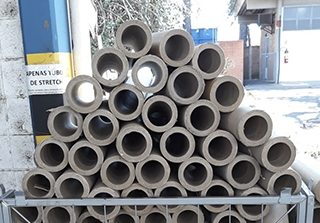Supply Chain
Human Rights and Fair Labor Practices
We seek to partner with suppliers who conduct their business in a way that is consistent with our culture and values. Our expectations of our suppliers include alignment with our:
- Code of Business Conduct and Ethics and our Anti-Human Trafficking & Slavery Statement.
- Supplier Code of Conduct, which prohibits the use of forced, bonded, child and indentured labor and involuntary prison labor.
- Supplier Responsible Labor Policy, which sets forth the standards we expect our suppliers to uphold to ensure that their working conditions are safe and that workers are treated with dignity and respect.
As stated in our Code of Business Conduct and Ethics policy, we have zero tolerance for human trafficking and slavery. Additionally, we strive to respect the rights of all stakeholders through our commitment to the Universal Declaration of Human Rights, OECD Guidelines for Multinational Enterprises, UN Guiding Principles on Business and Human Rights and the International Labor Organization’s Declaration on Fundamental Principles and Rights at Work. Our Global Human Rights Policy reinforces our responsibility to respect and promote human rights in our relationships with our employees, suppliers and members of the communities in which we operate.

Sustainable Supply Chain

Conflict and Responsible Minerals

Amphenol seeks to be a good corporate steward. In addition to complying with SEC Conflict Minerals regulations, we have our own internal commitment against the use of conflict minerals, contained in our comprehensive Responsible Minerals Policy. Our policy prohibits the use of tin, tantalum, tungsten, gold (3TG), cobalt or mica that may originate from sources that directly or indirectly finance or benefit armed groups through mining or mineral trading in the Democratic Republic of Congo or other adjoining countries. As detailed in our most recent annual Conflict Minerals Report, we actively survey our supply chain for all 3TG, cobalt and mica used in our products to confirm reasonable country of origin inquiries (RCOI) and proper due diligence processes have been performed. On an annual basis, we assess our responsible minerals program to determine if minerals beyond 3TG, cobalt and mica need to be added to our policy to support a responsible, conflict-free supply chain.
We have aligned our responsible minerals program with the principles of the OECD Due Diligence Guidance for Responsible Supply Chains of Minerals from Conflict Affected and High-Risk Areas (CAHRAs). Amphenol has determined that our European operations are not directly in-scope for the European Union (EU) Conflict Minerals Regulation and its CAHRAs purview, however, we assess our status annually and align our business operations with applicable responsible sourcing guidance to support our customers who are in-scope for the regulations. Amphenol is a proud member of the Responsible Minerals Initiative (RMI), an industry organization dedicated to collectively understanding and addressing significant social and environmental impacts associated with the extraction and processing of raw materials in supply chains.
